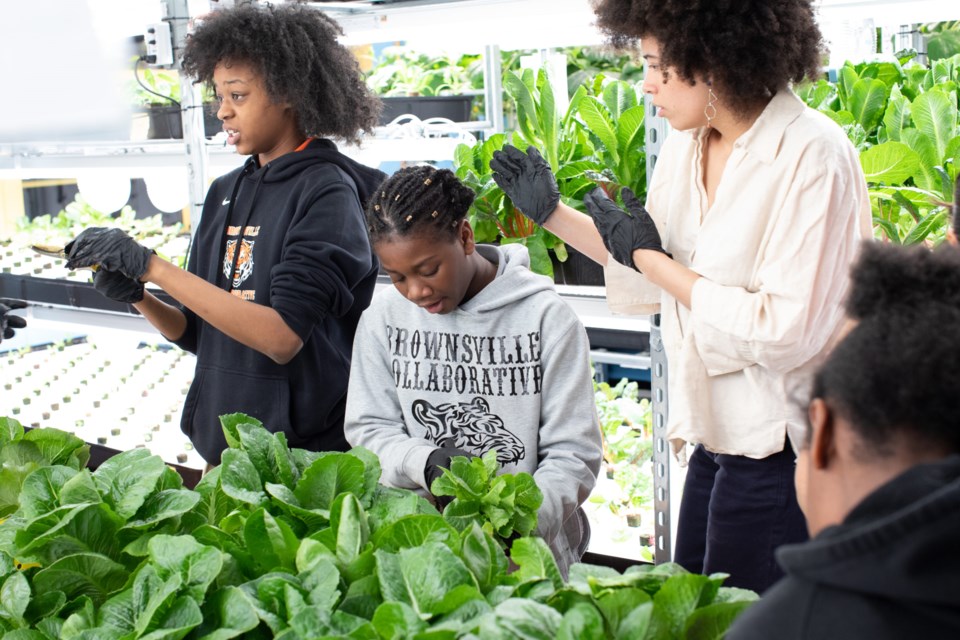A local nonprofit is working to provide students with the skills to fight food insecurity in Brooklyn and beyond.
Teens For Food Justice was started in 2013 by co-founders Tara Swibel, Katherine Soll and Chana Chenfeld.
“The premise behind it was that there were a lot of divested neighborhoods that didn’t really have access to healthy produce or healthy food,” said Aliya Brown, senior communications and content manager for the organization.
“There are a lot of communities (in New York City) that are primarily food deserts where there’s just massive amounts of junk food around, and there’s not really a lot of options.”
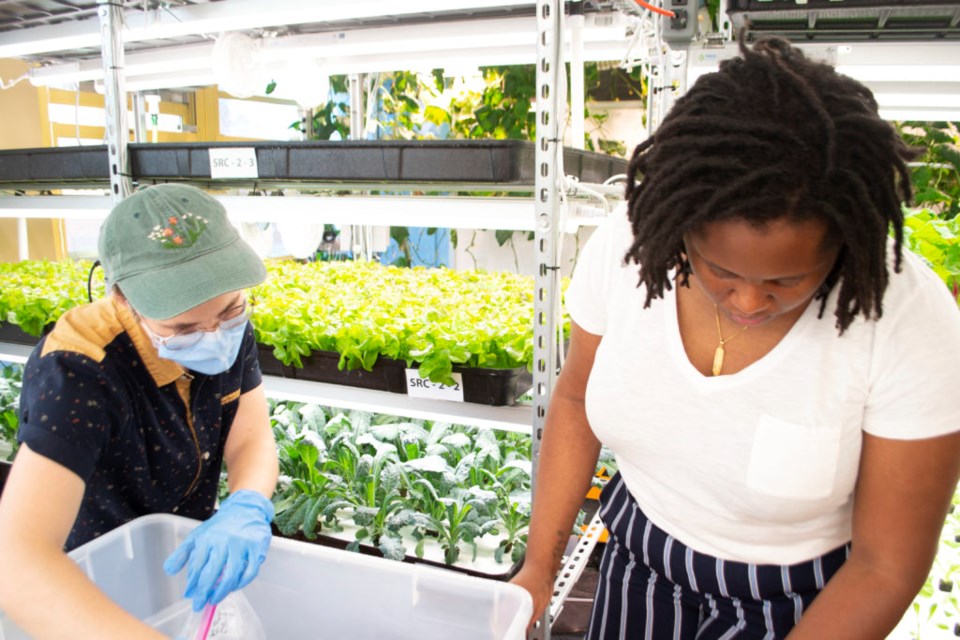
So the organization began working on placing “high capacity hydroponic farms” in local schools by partnering with educators in science, technology, engineering and mathematics education, as well as nutrition education.
“We came together and were really intrigued by the idea of embedding into communities and the idea of putting farms in schools, where schools can be the center of community food distribution, community food work,” Soll, CEO and president of TFFJ, said. “A place where students can learn, with a hands-on outcome.”
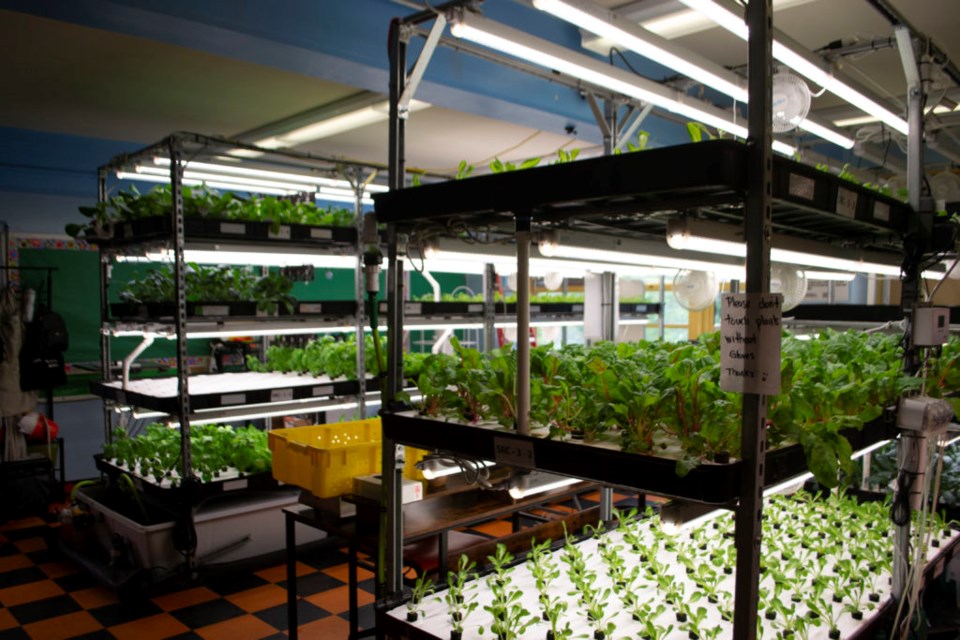
Nearly a decade after TFFJ was founded, it operates five indoor hydroponic farms across New York City. Two of those are located right here in Brooklyn—one at Brownsville Collaborative Middle School and the other at Urban Assembly Unison School in Bedford-Stuyvesant. TFFJ also operates one farm at a school in Denver and is looking to expand to other cities as well.
At Brownsville Collaborative Middle School and the other farms, students get experience growing food that is then put to use before their eyes—some of it going directly to their school cafeteria.
“Right now, the cafeteria (at Brownsville) is receiving lettuce, kale—specifically this variety called black magic kale, which is like a dynamic kale or lacinato, collard greens as well as basil,” said farm operations manager Connor Gorsira, who manages all of the farms across the city.
“Those were just requested by the cafeteria manager, but we can really grow whatever. And you know, they have a salad bar, so they will kind of just take whatever lettuces and leafy greens and put them in a self serve salad bar so that students can have access to whatever they want to eat during lunch.”
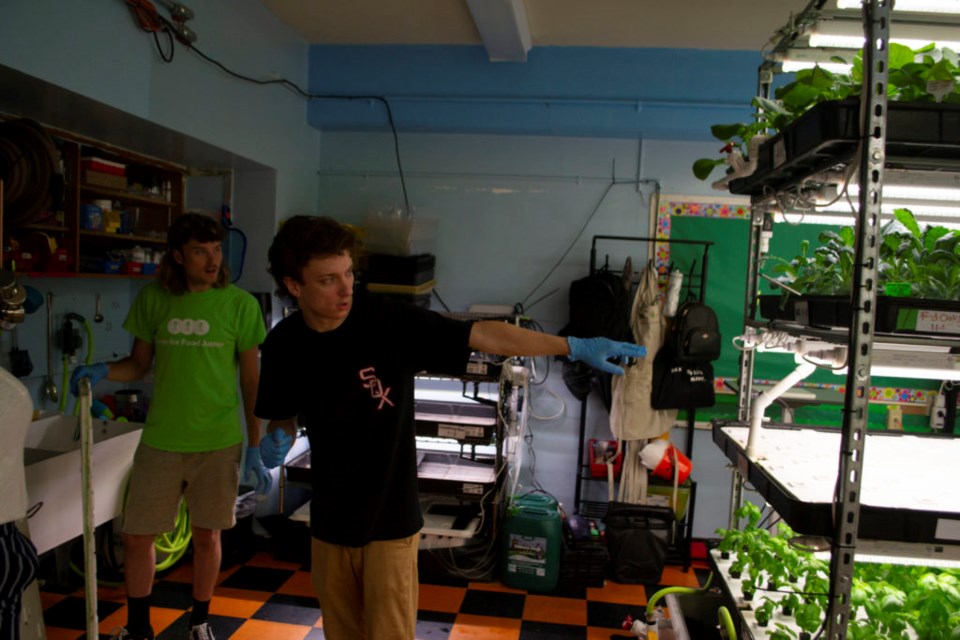
The hope is to equip the students with the tools to become food justice advocates within their own community.
“So a lot of our programming, also beyond nutrition education and encompasses, like food distribution,” Brown said. “But there's also the advocacy of the work that we do with students. So it's empowering them to speak to leadership within their school and say, Hey, like our menu in our cafeteria, it's not the healthiest. It's not that it's not the best, what can we do to improve it?"
The first draw for the kids who decide to get involved with the farm, whether in classes or during an after-school program, is deciding to try to make something familiar to them out of the farm ingredients, said Renae Cairns, advocacy and community engagement manager for TFFJ.
“I would say that oftentimes, students get excited about being able to cook and eat what we have right here on the farm, even when some of the stuff that we grow might be unfamiliar, or just something new,” Cairns said. “Once students get to say, Oh, well, like, I want to cook pizza or something. And then we make that happen on the farm using farm ingredients.”
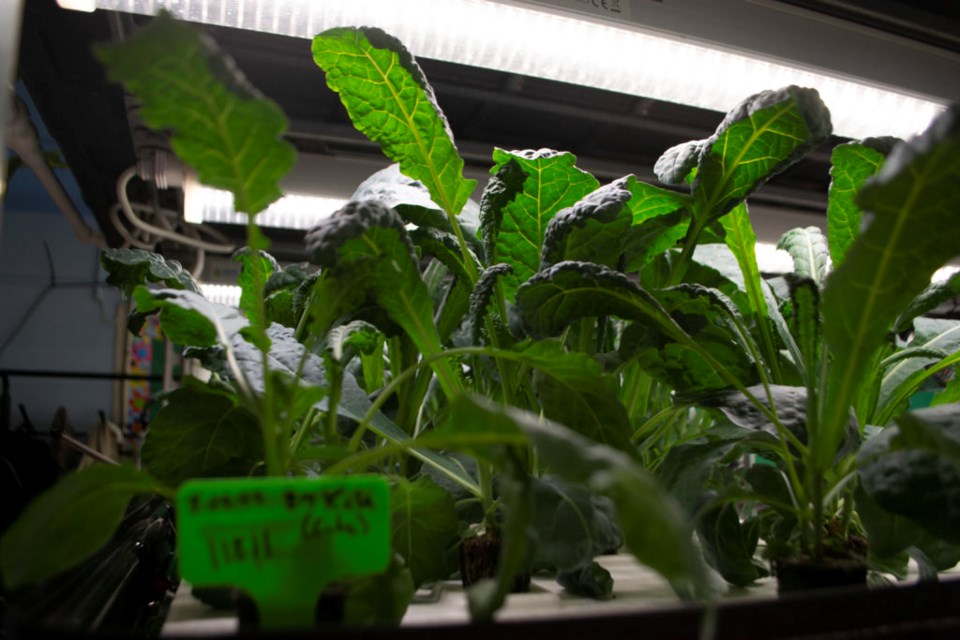
The food grown in Brownsville and other campuses doesn’t just stay at those schools. The intention is also for it to be distributed to the community.
The Brownsville farm, launched in 2018, now generates 5,700 pounds of food annually.
Soll, the CEO and co-founder, said she’s seen students take the things they’ve learned with Teens For Food Justice and apply that knowledge in really interesting ways. She pointed to one teen seeking a career as a nurse.
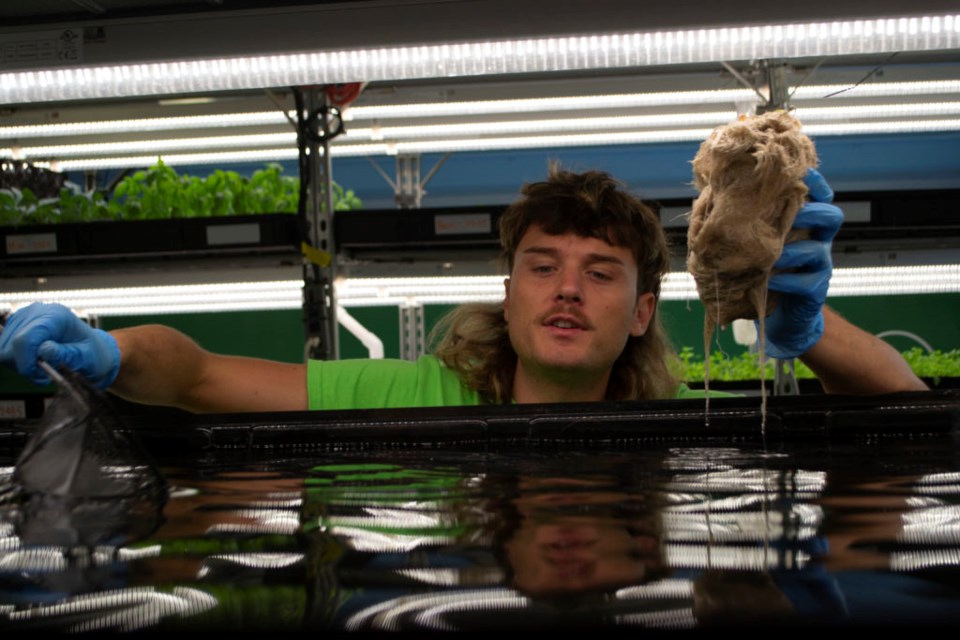
“She said what she learned from the farm, the analysis of food systems and getting kids involved in food distribution, seeing what is and isn’t available, that ‘I understand as a nurse that I have an obligation to incorporate nutrition education with my patients,’” Soll recounted.
“I thought that was unbelievable, the girl had been with the program for two or three months and she already got it.”
Soll said two more New York City farms will soon launch in Far Rockaway and Manhattan, and a second farm in Denver—this one at a community center rather than a school—will open soon.

